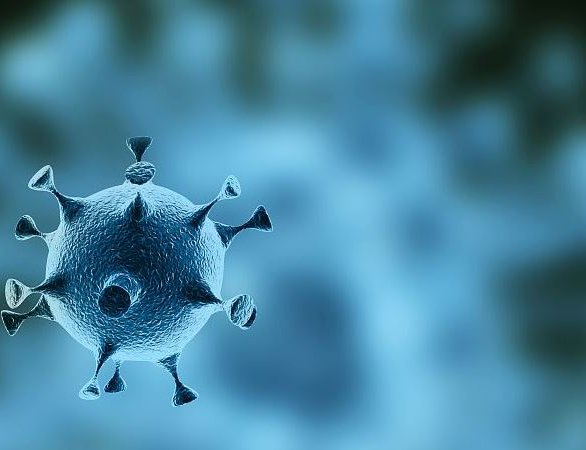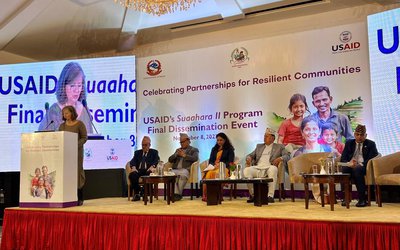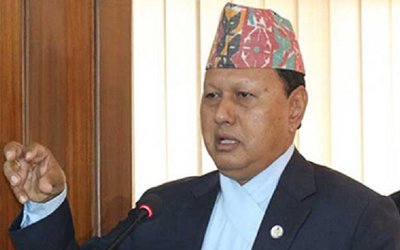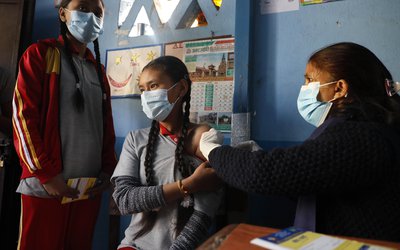
Fears that a new, fast-spreading coronavirus variant could potentially be more dangerous than even the Delta variant prompted several countries to impose restrictions on travel from affected regions, and caused stock markets across the globe to crash.
In the wake of a new variant of the novel coronavirus or SARS-CoV-2 reported lately in South Africa, the Ministry of Health and Population has urged people to remain cautious and follow the health protocols.
The World Health Organization (WHO) had designated this variant, B.1.1.529, as a “variant of concern (VOC)”, and given it the name Omicron.
The variant, which was announced by scientists in South Africa on Thursday, was detected in two more countries, Israel and Belgium. Botswana and Hong Kong are the other countries where the variant has been found.
The WHO said about 100 genome sequences of the variant have been reported so far. Many of the infected people were fully vaccinated, with at least one person in Israel having also received a third, booster, dose of vaccine.
Nepal which has announced the resumption of routine international air services said it would step up screening of flyers, especially those from affected countries.
In an urgent note to provincial governments, Health Secretary had said the emergence of the new variant had “serious public health implications”, and asked them to increase vigilance.
Nepal is at risk when a virus variant is reported anywhere across the globe, said Joint Secretary at the Ministry, Dr Samir Kumar Adhikari. So caution is necessary, he said.
There is no need to worry as the variant has not been reported in Nepal. But caution is necessary, he said. "At present, only the number of COVID-19 cases is decreasing. But the risks still persist. So there is a need to follow the health protocols."
The scientific analysis till now suggests that the new variant has been spreading at a rate faster than any other variant, including Delta. The fact that several of the infected people were fully vaccinated, including one with a booster dose, is an indication that this variant also has considerable capability to evade the immune response.
This means that this variant is a cause of worry on at least two of the three criteria that are used to assess how dangerous any new variant is. As of now, there is no information on its ability to cause severe disease, the third crucial criteria.
“This variant has a number of mutations, some of which are concerning. Preliminary evidence suggests an increased risk of reinfection with this variant, as compared to other VOCs,” the WHO said in a statement.
“The number of cases of this variant appears to be increasing in almost all provinces in South Africa… This variant has been detected at faster rates than previous surges in infection, suggesting that this variant may have a growth advantage,” it said.
“Based on the evidence presented indicative of a detrimental change in Covid19 epidemiology…the WHO has designated B.1.1.529 as a VOC, named Omicron,” it said.
The Delta variant, first discovered in India late last year, has been the deadliest variant of SARS-CoV2 on all these three counts till now. It is the dominant variant now in most regions and is the reason behind the deadly second wave in India, and the ongoing surge in Europe and a few other regions.
Scientists said it was too early to say whether the new variant was more lethal than Delta, but called for stricter surveillance.
“Not everything is known about this variant yet. Data is still coming in. As of now, we know that it has over 30 mutations, of which 10 are in the spike protein. Whether this variant turns out to be a faster spreading one, or one that has a greater ability to evade immune response is still to be seen.
Others hold the view that the emergence of the variant was not an unexpected development, but authorities needed to respond with increased surveillance to ensure early detection and effective isolation.
“Viruses mutate all the time. That is something to be expected. But we should be able to ensure that it does not gain a foothold in many people,” said scientists.
They also emphasized the need for making adequate supplies of vaccines available to South Africa, where the new variant is the most widespread.
- Nepal-China Aid Project Meeting Held In Lhasa
- Apr 25, 2024
- Ambassador Subedi Presented The Letter Of Credence To President Of Italy
- Apr 25, 2024
- Nepal-Qatar Joint Business Council Formed
- Apr 25, 2024
- Weather Forecast: Isolated Brief Rain Is Likely To Occur At Few Places Of Koshi, Sudurpaschim And Karnali
- Apr 25, 2024
- Qatar And Nepal Ink Several MoUs, Returned Home Completing Two Days Visit
- Apr 24, 2024
















